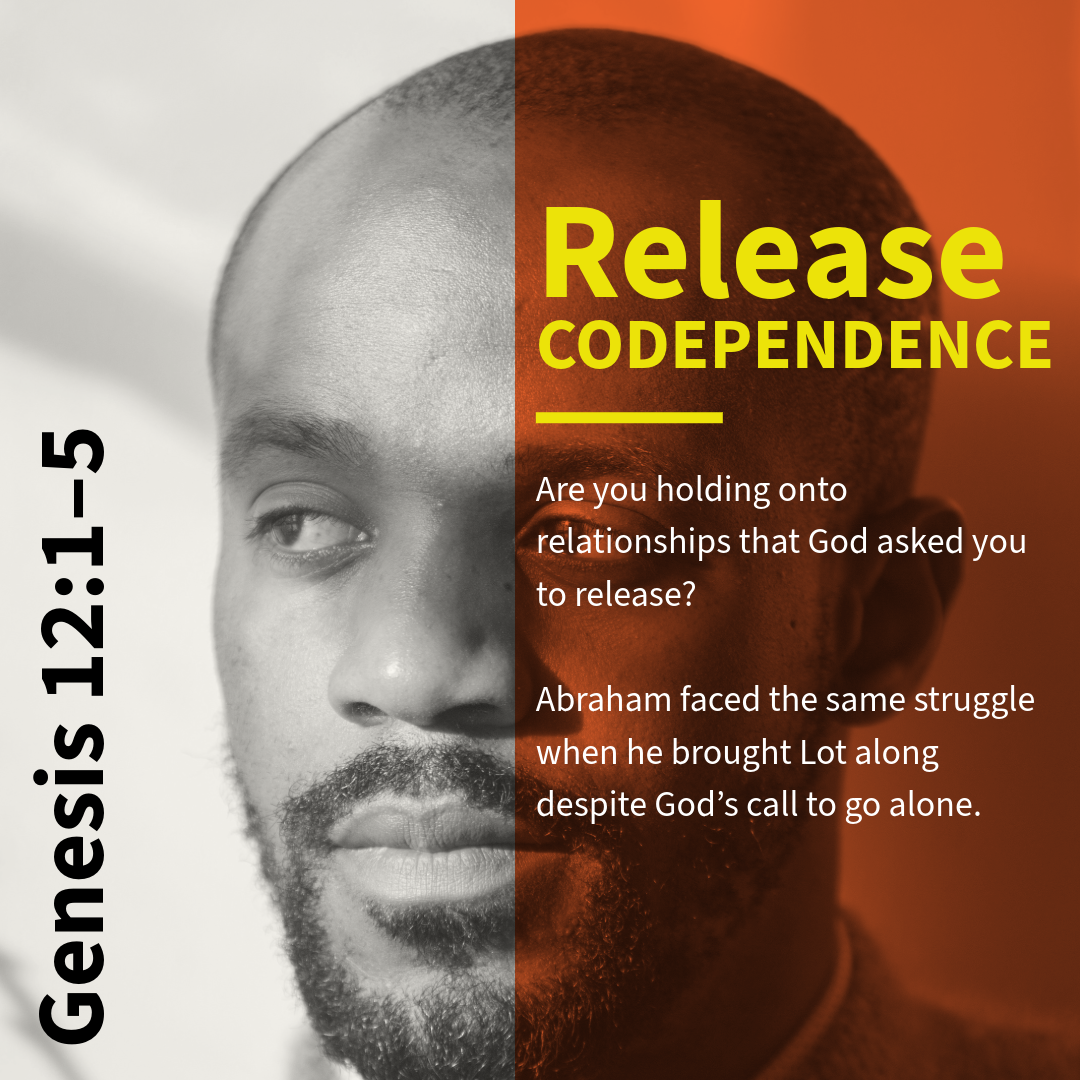Last time, we talked about overcoming anxious attachments. This week, we’ll talk about codependence but as we do let’s define codependence and look at the difference between anxious attachments and codependence. If you remember, anxious attachments often stem from childhood, emotional trauma, abandonment, and more, and often lead to clinginess. We saw an example of anxious attachment in Leah. Codependence is a behavioral/emotional condition in which a person relies too much on another for emotional validation, self-worth, and identity. While they are defined differently, anxious attachments can result in codependent relationships. Codependence leads to excessive caretaking, poor boundaries, fear of abandonment, and staying in toxic relationships.
In Genesis 12:1-5, we read the story of how God told Abram to leave his country, his people, and his father’s household and go to the land God would show him. God made great promises to Abram, yet when Abram left, his nephew Lot came along. Now nearly all of us know Abraham because of his great faith but before he became the father of faith, he had some significant failures – including his codependent/toxic relationship with his nephew Lot. As we focus on God’s call of Abraham, let’s look at his entire response. God calls Abraham…Abraham takes Lot. The result of this codependent relationship is extremely problematic and ultimately causes a lot of pain and problems, but it does teach the importance of cutting the cord on codependent/toxic relationships.
To cut cords, we must identify codependent/toxic relationships. Many of us stay in these relationships because we haven’t identified them or recognized them for what they are. Had Abraham been told his relationship with Lot was codependent, he would have likely denied it. Like us, we simply don’t recognize relationships as such until the relationship causes pain or problems.
What’s the first step in identifying codependent/toxic relationships? These relationships are often based on a shared past or shared pain. In Genesis 12, we learned Terah was the father of Abraham, Haran, and Nahor. Haran, Lot’s father, died before the family left Ur going to Canaan. Before arriving, Terah stopped and settled, so God called Abraham to finish what his father had begun. Abraham took Lot because of what they had been through together. Often, we make relationship decisions that way – thinking because we have been through something difficult or painful, we are supposed to be with them moving forward – but that is not always the case. The emphasis is on where we are going not where we have been. This week, as we examine our relationships, may we remember that what makes us great is not holding onto what we need to let go of or letting go of what we need to hold onto.

